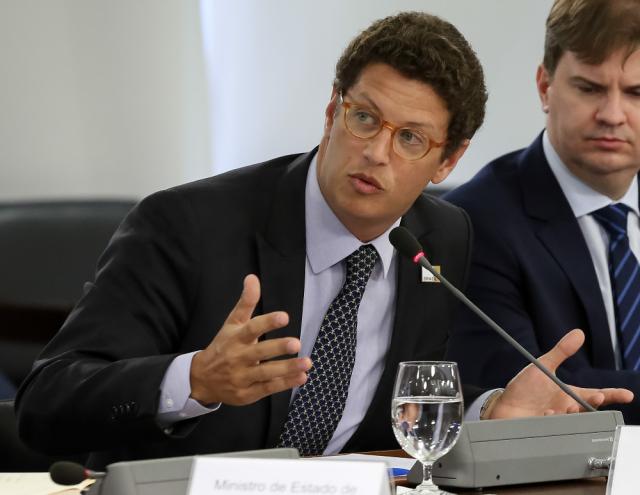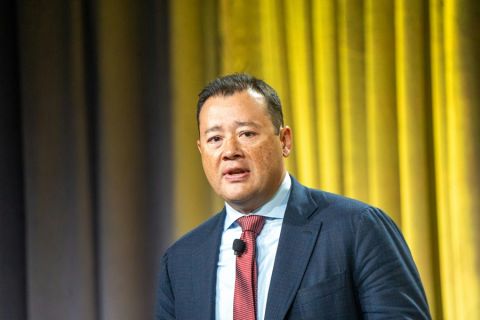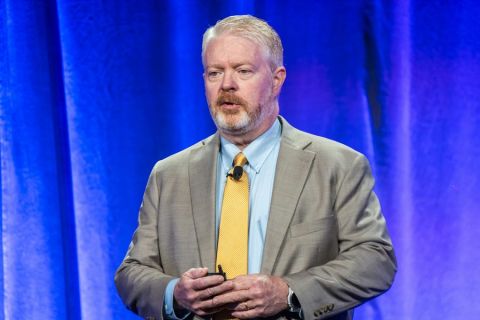
Brazil’s Minister of the Environment Ricardo Salles wants to improve the country's environmental licensing process. (Source: Brazilian government)
RIO DE JANEIRO—Brazil’s new environmental minister is working to establish a more agile process for environmental licensing in the country in order to boost oil and other extraction activities.
“We need speed, agility, stability and legal certainty,” Brazil’s Minister of the Environment Ricardo Salles said during a March seminar in São Paulo. “That does not mean loosening the guarantees for the environment.”
His comments were delivered amid ongoing challenges in Brazil’s oil and gas sector. There is an apparent need for solutions to go beyond technological improvements to also include improving regulatory policies with environmental licensing playing a vital role.
The environmental licensing process for E&P activities has become so complex that there is a high degree of uncertainty regarding how long it takes to gain permission, which makes planning operations difficult, according to the Brazilian Petroleum, Gas and Biofuels Institute (IBP). This complexity is due to the excessive number of consultations required in the licensing process.
For Salles, who took office in January, the debate must be intensified with a bill, which will be sent to the National Congress, regarding environmental issues and a proposal to address them. “The executive branch has to prepare the environmental regulatory agencies to work for the efficiency of the law,” he said
Among the initiatives is digitization of the licensing process issued by the minister of environment and monitoring oil activities in the country, Salles said.
Ibama, the environmental agency for Brazil, is in charge of assessing such projects and associated risks, and it will do so on a strictly technical basis, according to Salles.
“It’s important to remember: environmental licensing is not an instrument to say no. It is an instrument to determine under what conditions to say yes,” he said.
The agency’s objective involves gauging the benefits and risks of each project and then deciding whether there are measures that can be taken to mitigate risks, allowing a project to go ahead. The current Brazilian administration marks a shift from previous left-wing administrations when, Salles said, decisions were based on “dogmas” that compromised protection of the environment.
Salles’ decision to make the environmental licensing process more agile is in line the wants of the IBP, which sought faster and clearer procedures.
“It is important that the oil and gas industry have clearer and more predictable licensing rules,” said Carlos Henrique Abreu Mendes, executive manager of HSE and E&P operations, for IBP. “Standardized and predictable procedures define costs, feasibilities and schedules.
“If plans have to be changed due to the uncertainties of the process, this may make hiring impossible and lead to the cancellation of investments,” he said, adding that one of the critical stages of the well-drilling planning process is the decision to hire a drilling rig company.
Criticism
Salles’ idea for a more agile environmental licensing process for not only for oil and gas activities but also for other business activities such as mining, agricultural and other energy sources has drawn some criticism from non-governmental organizations. In early March, Rio-based German journalist Philipp Lichterbeck said in a column the new Brazilian government’s environmental policies were bent on turning the country’s landscape into “an inferno of soy, pastureland, agrochemicals, sugarcane and mining industry.”
Criticism increased after the collapse of the dam at Córrego do Feijão Mine in the city of Brumadinho, killing at least 200 people and bringing to light the risks of certain activities on the environment. The collapse of the dam, which was owned by the world’s largest iron ore miner Vale, occurred in January, and it is considered Brazil’s worst environmental disaster.
Yet, Salles defended the system of environmental licensing and inspection for what is actually more relevant, saying that activities of little significance in terms of environmental risk can be self-declaratory, then the state will systematically oversee and subsequently be firm in its consequences.
“The system linked to oversight and licensing is very restrictive. We have to have more balanced rules,” he said. “In order to do so, we will have to have a higher skilled workforce. Today there are technical inspectors displaced to carry out low risk analyzes,” he added.
Salles said the interest of the Ministry of the Environment is to focus on what really matters: to bring licensing faster naturally. “By streamlining surveillance and self-declaration, we will have more people taking care of fewer problems,” he said.
If the state had a well-structured, well-trained and well-resourced enforcement system, the risks inherent in extracting activities would certainly be mitigated and “probably avoided,” he said.
Recommended Reading
BKV CEO Chris Kalnin says ‘Forgotten’ Barnett Ripe for Refracs
2024-04-02 - The Barnett Shale is “ripe for fracs” and offers opportunities to boost natural gas production to historic levels, BKV Corp. CEO and Founder Chris Kalnin said at the DUG GAS+ Conference and Expo.
How Diversified Already Surpassed its 2030 Emissions Goals
2024-04-12 - Through Diversified Energy’s “aggressive” voluntary leak detection and repair program, the company has already hit its 2030 emission goal and is en route to 2040 targets, the company says.


